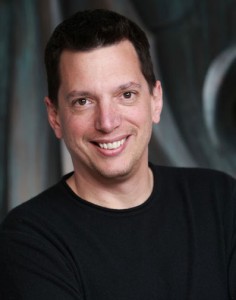Nokia’s troubles today will be all but forgotten come next year, according to Richard Kerris, Nokia’s global head of developer relations. By spring, he said during an interview in Sydney, Australia earlier today, people won’t talk about the problems the company is having now. That doesn’t mean the next months won’t be hard for Nokia, but in Kerris’ view, the company will come out of this phase stronger than ever before.
Kerris just joined Nokia a few months ago, making a big personal bet on Nokia and the Windows Phone ecosystem. Kerris previously worked for Apple under Steve Jobs and was the CTO of Lucasfilm before joining HP where he worked on that company’s ill-fated WebOS efforts. In our interview, Kerris was very frank about how he felt the WebOS project was mishandled by HP, especially because the company insisted on certain price points and “shiny black plastic.” HP’s entry in the market and its commitment to Palm was simply not “heartfelt” in his view. He called the end of the project a “bizarre scenario,” especially because many OEM orders still had to come in at the time HP killed the Touchpad.
As for joining Nokia, Kerris stressed how he wasn’t immediately enthusiastic about the idea of joining the company after Stephen Elop reached out to him. What changed his mind, though, was seeing prototypes of Nokia’s Lumia phones, which in his view, rival the build quality of Apple’s products. Kerris’ assessment of Nokia’s last few years was surprisingly frank, too. The company Elop inherited when he became the CEO, he said, had gone through a few years where it was arrogant and neglected obvious market opportunities, especially around smartphones. Looking ahead, though, it’s clear that Nokia is betting the company on Microsoft’s unified Windows 8 platforms.
The cuts the company made last month were necessary to help bridge the company over until the release of Windows Phone 8. At the same time Nokia made these cuts, though, it also announced that it was doubling down on Windows 8 and its efforts around location services and imaging (including PureView, which will soon come to Windows Phone as well). Around the same time, Nokia also announced the acquisition of Swedish imaging company Scalado and its products will likely be integrated into Nokia’s phone very soon as well.
As for Nokia’s bet on Windows Phone, Kerris argues that this wasn’t much of a gamble for the company. The choice wasn’t between Android or Windows, he said. What Nokia wanted was a distinct operating system, which only Microsoft currently offers. Besides this, the future, in his view, isn’t really about operating systems anyway, but about offering users the features and functions they want, whether that’s through phones, tablets, wearable computing or other means. Nokia, he said, wants to focus on what it does best, including location services and imaging and with Microsoft, it has a partner it can depend on for years to come.
The company’s U.S. headquarters in Sunnyvale, says Kerris, now has a very startup-like feel. Even if things don’t work out for Nokia in the long run, he said, “at least we’ll have fun and go down trying.” While Kerris warned that the next month would be hard, though, he also stressed that the company is committed to helping developers (with a focus on good apps, not just quantity). Just over the last eight months, he said, the app ecosystem for Windows Phone has grown 1,400% and over 300 new apps are added to the store every day right now.
For now, though, the company has to get through to next few months until Windows Phone 8 ships. That’s not an easy position to be in and one that Kerris likened to the dark days at Apple where the company was at the brink of bankruptcy. Most pundits assume that Microsoft will swoop in and help Nokia out if things really go sour (after all, Nokia is Microsoft’s strongest partner with regards to Windows Phone). Kerris himself seem to be optimistic that the company can make it through these hard times on its own, though, based on its strong patent portfolio (it’s making money of every iPhone sold, for example) and upcoming products (which will likely include tablets, too, though Kerris would obviously not confirm this).
